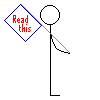CISC 3120 -
Design & Implementation of Software Applications I
Meyer - Spring 2013
Thurs 6:30-9:00PM
130NE
Announcements & Calendar

COURSE INFORMATION
Course Abbreviation: CISC 3120Credits: 3.0 (3 hours)
Code: 0967
Section: ER6
Schedule: TH 06:30-09:10PM
Room: 130 NE
Lab: 130 NE
Semester: Spring 2013
INSTRUCTOR INFORMATION
Instructor: Matthew MeyerOffice: 534 NE
E-mail:

Web Page: http://www.sci.brooklyn.cuny.edu/~meyer
COURSE DESCRIPTION
Introduction to topics from diverse areas of computer and information science in an application-oriented context. Design, development, implementation and testing of a web-based, data-backed interactive application, such as an educational game or an e-commerce site. Human-computer interaction (HCI), graphics programming, net-centric computing, and software design. Learning code development by example, modification of instructor-authored code and independent code authoring. Application Programming Interfaces (APIs) and state-of-the-art tools to design and partially prototype systems. Open-source technologies and their relationship to commercial technologies currently popular in workplaces. Application of fundamental computer skills and knowledge to rapidly changing job-specific technologies, tools and environments. Hands-on system development. Students should be prepared to take CISC 3140 in the following semester.Topics
- User Interfaces
- Introduction to Java
- Foundations of Human-Computer Interaction (HCI)
- User Interface (UI) Design Principlies
- Graphics
- Fundamental Techniques in Graphics
- Graphics Systems
- Network/Web-based Programming
- Communications and Networking
- CGI Programming
- Client-side and Server-side scripting
- Network Security
PREREQUISITES
This course should be taken after cisc3110 (formerly cis15).REQUIRED TEXTBOOK(S)
There is no set textbook for this class. Online resources will be provided for all topics.TECHNOLOGY REQUIREMENTS
A USB FLASH drive is REQUIRED.You will need to have access to a computer and the internet for this class. If you have a laptop, you can bring one to the labs. If not, you should use the public machines in the library or the WEB building to complete your assignments. When specialized software is required, it will be either provided in the lab, or be freely available online.
GRADING
- Labs & Projects 40%
- Midterm 20%
- Final 30%
- Attendance & Participation 10%
GETTING HELP
- COME TO CLASS.
- Take good notes.
- Ask questions.
- Do the assignments on time.
- Contact me if you are confused or fall behind, for whatever reason. Come to my office hours or email me.
- I get MANY email messages every day, so please keep your message short and to the point. If your story goes on longer than a page (80 columns by 24 rows of text), then be aware that I probably won't read much past the first page.
- Note that email messages where the sender's name seems fake (e.g., "Mickey Mouse") or the subject is blank or undecipherable, may be automatically filtered out in attempt to eliminate spam and other offensive messages.
- Please don't email me programming code.
- Don't ever email me an application (executable code)!
- If I haven't replied to you, please be patient. Sending me multiple copies of the same message (or multiple messages that say the same thing) only clogs my inbox, which takes me longer to get to your message.
- PLEASE USE THE FOLLOWING SUBJECT LINE IN ALL EMAILS TO ME:
Your name, this class, why you are writing
Example: M. Meyer, CISC 1600, Hmwk #1
PROJECT INFORMATION
If you are using a MAC, you can use the File - Create Archive utility in the Finder. Simply highlight all the files you want to include in the archive by clicking once on each file's icon while holding down the Apple key. Then from the Finder, click on File - Create Archive and an archive file will be created called Archive.zip.
COURSE POLICIES
- Represent the work of others as their own.
- Use or obtain unauthorized assistance in any academic work.
- Give unauthorized assistance to other students.
- Modify, without instructor approval, an examination, paper, record, or report for the purpose of obtaining additional credit.
- Misrepresent the content of submitted work.
Any student violating the college’s academic integrity policy is subject to receive a failing grade for the course and will be reported to the Office of Student Affairs. If a student is unclear about whether a particular situation may constitute violation, the student should meet with the instructor to discuss the situation.
For this class, it is permissible to assist classmates in general discussions of computing techniques. General advice and interaction are encouraged. Each person, however, must develop his or her own solutions to the assigned projects, assignments, and tasks. In other words, students may not "work together" on graded assignments. Such collaboration constitutes cheating. A student may not use or copy (by any means) another's work (or portions of it) and represent it as his/her own. If you need help on an assignment, contact your instructor, not other classmates.
In order to receive disability-related academic accommodations students must first be registered with the Center for Student Disability Services (CSDS). Students who have a documented disability or suspect they may have a disability are invited to set up an appointment with the Director of the Center for Student Disability Services, Ms. Valerie Stewart-Lovell at 718-951-5538. If you have already registered with the CSDS please provide your professor with the course accommodation form and discuss your specific accommodation with him/her as soon as possible and at an appropriate time.
